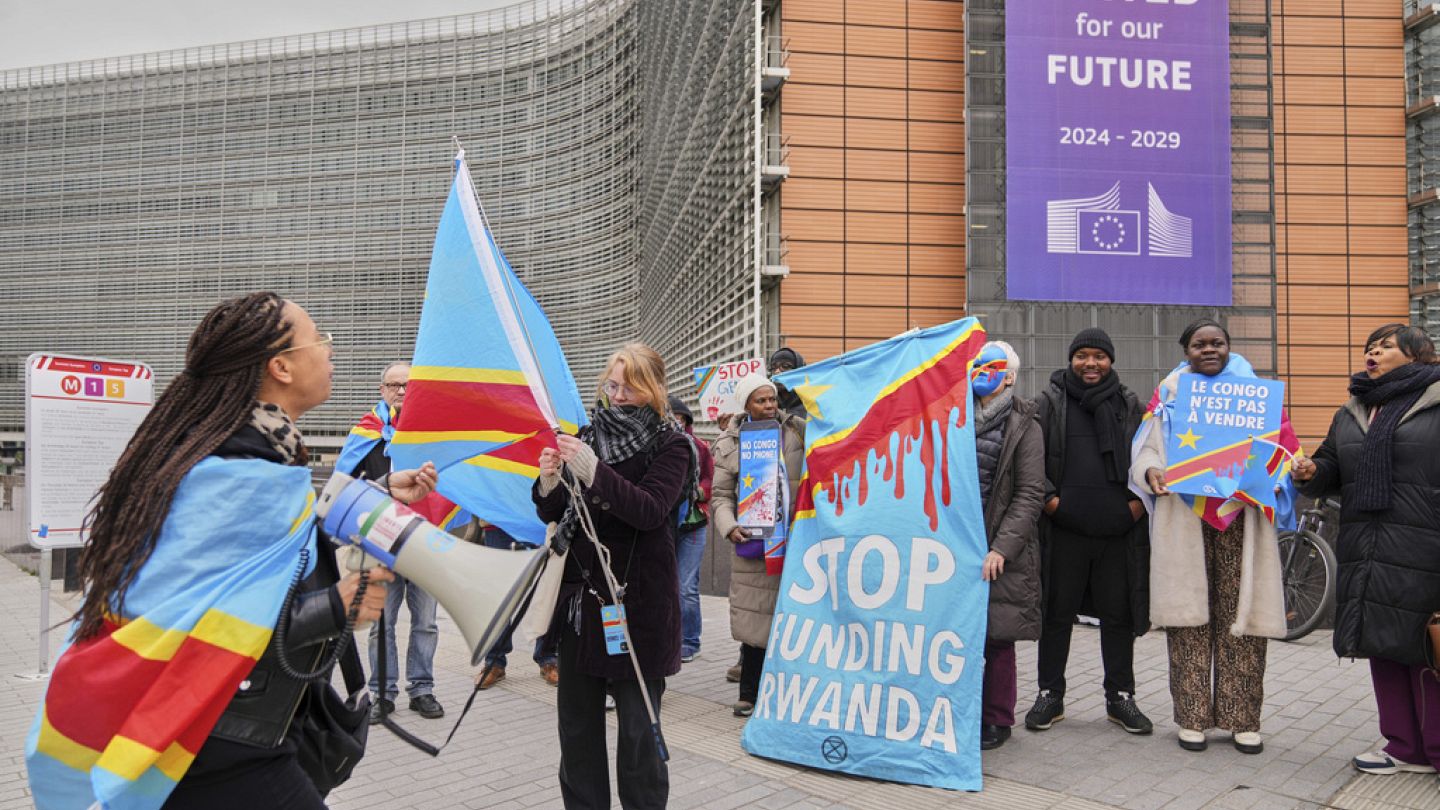Were Belgian soldiers deployed in the Democratic Republic of Congo?
Amid the diplomatic tension between Belgium and Rwanda, the Brussels government denied allegations that it had sent troops to fight against rebels in the eastern Democratic Republic of Congo.
Reports and social media posts claiming that Belgium has deployed soldiers in the eastern Democratic Republic of Congo to fight against local rebels are circulating online. According to the allegations, between 300 and 400 Belgian soldiers will fight alongside the Congolese army and militia groups against the M23 rebels. Belgium and the EU generally support the Democratic Republic of Congo against Rwanda. However, Belgium vehemently rejects these claims and accuses Rwanda of conducting a disinformation campaign against it during a period of escalating tensions that led to the severing of diplomatic relations between Brussels and Kigali. Rwanda has targeted Belgium, claiming that it has sided with one party in the ongoing conflicts in the eastern Democratic Republic of Congo, which has seen violence for over thirty years since the Rwandan genocide in 1994. Belgian Deputy Prime Minister and Foreign Minister Maxime Prevot stated that the claims circulating online are "grotesque fake news." In a post on X on March 26, Prevot said, "A Belgian unit consisting of 6 (!) soldiers is in Kindu for the implementation of European support regarding non-lethal equipment for the Congolese army. Therefore, there is NO deployment to participate in any operation, and Belgium has no such intention!" Prevot added, "As for the rest, everything related to this tweet is nonsensical, as it clearly aims to provoke and escalate tensions." He made his statement on the same day he told the Belgian parliament that the claims were part of a disinformation campaign conducted by Rwanda and "actors sympathetic to the Rwandan cause." He stated that the campaign is designed to "damage Belgium's image, escalate tensions, and legitimize a certain interventionism." Later, counterclaims emerged online alleging that eight Belgian soldiers were killed in the conflicts and that numerous military flights had occurred between Belgian and Congolese cities. However, Belgium released its counterclaims. Referring to a press release published by the Ministry of Defense at the end of March upon a request from EuroVerify, the statement indicated that around 10 Belgian soldiers are in Kindu under the EU's European Peace Facility (EPF) project. The press release stated, "This initiative aims to strengthen the EU's capacity for conflict prevention, peacebuilding, and protection, and to enhance international security and stability." "Belgium is committed to maintaining this EPF project in Kindu until at least December 2027." According to the Ministry of Defense, Belgium's role in this initiative consists of two parts: procurement of equipment, including engineering equipment for the 31st Rapid Reaction Brigade, and infrastructure works at the Lwama Camp in Kindu, which hosts the same brigade. It also added that Falcon 7X planes are flying between Belgium and the Democratic Republic of Congo, but in the context of separate missions unrelated to a new military deployment. The Ministry of Defense stated, "It is also important to note that a Falcon 7X has a maximum capacity of 14 people and that the deployment of Belgian military personnel as part of an operation must be pre-approved by the government." The Rwandan government is not being accused for the first time of launching a widespread disinformation campaign to achieve its goals. A study published by the Media Forensics Center at Clemson University in South Carolina in June 2024 found that the government of Rwandan President Paul Kagame used artificial intelligence to generate and disseminate political propaganda during its presidential campaign. It was reported that hundreds of X accounts shared hundreds of thousands of posts using artificial intelligence to support different propaganda narratives, most focusing on the Democratic Republic of Congo conflict. While the Rwandan Ministry of Foreign Affairs did not respond to our request for comment, we were also unable to reach the Ministry of Foreign Affairs of the Democratic Republic of Congo. The deteriorating relations between Belgium and Rwanda led to Rwanda severing diplomatic ties with Belgium in mid-March due to the conflict in the Democratic Republic of Congo and ordering all Belgian diplomats to leave the country within 48 hours. Rwanda stated that doing so would protect its national interests, as Belgium was "clearly taking sides in a regional conflict and systematically mobilizing against Rwanda in various forums." Kigali accused Brussels of "making pathetic attempts to pursue its neo-colonial dreams," pointing to Belgium's "deep and violent historical role" in the violence in the Democratic Republic of Congo. Belgium responded similarly by terminating all government cooperation agreements between the two countries. Belgium announced that it rejects the statements made to justify Rwanda's decision. In a statement from the Ministry of Foreign Affairs, it said, "Belgium is not seeking to punish or weaken Rwanda, nor is it seeking to punish based on a colonial past it distanced itself from long ago." "This is a complete distortion of the facts." Kigali has been criticized by countries, including Belgium, for supporting the M23 rebels, who captured the two largest cities in the eastern Democratic Republic of Congo, Goma and Bukavu, in recent months. M23 is one of nearly 100 armed groups fighting for control of a mineral-rich area near the Rwandan border. While the group's fighters claim to protect the rights of ethnic Tutsis in the region, the Democratic Republic of Congo accuses Rwanda of supporting the rebels to control territory in the region, while Belgium is accused of undermining the territorial integrity of the Democratic Republic of Congo. The severing of diplomatic relations between the two countries coincided with the EU's imposition of sanctions on five Rwandans linked to the violence in the Democratic Republic of Congo.


